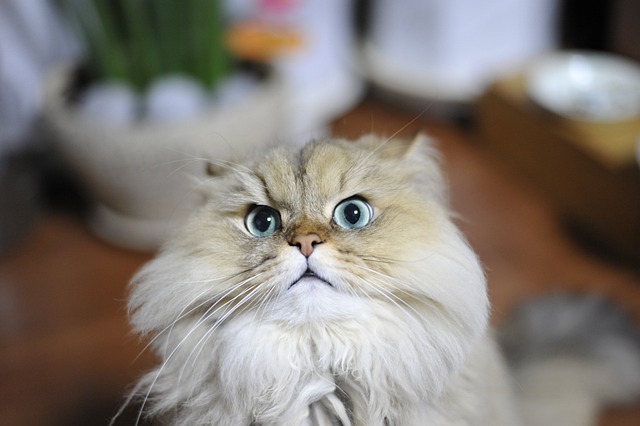Domestic cats have been humanity’s beloved companions for over 9,000 years, evolving from wild hunters to cherished family members. These remarkable creatures combine independence with affection, making them ideal pets for millions of households worldwide. Understanding your feline friend’s needs, behaviors, and characteristics is essential for building a strong, lasting bond.
Origins and Evolution
Domestic cats (Felis catus) descended from African wildcats and were first domesticated in ancient Egypt and the Near East. Unlike dogs, cats largely domesticated themselves, choosing to live near human settlements to hunt rodents attracted to stored grain. This self-domestication explains why cats retain many wild instincts while adapting beautifully to home life.
Popular Domestic Cat Breeds
Shorthaired Breeds: The American Shorthair offers a sturdy, adaptable nature perfect for families. British Shorthairs are known for their calm temperament and distinctive round faces. Russian Blues captivate with their silvery coats and gentle personalities, while Siamese cats are famous for their vocal nature and striking blue eyes.

Longhaired Breeds: Persian cats epitomize elegance with their luxurious coats and sweet dispositions, though they require daily grooming. Maine Coons, America’s gentle giants, combine impressive size with friendly personalities. Ragdolls live up to their name by going limp when picked up, making them excellent lap cats.

Mixed Breeds: Don’t overlook domestic shorthairs and longhairs – these mixed-breed cats often display fewer health issues and unique personality combinations, making wonderful, affordable companions.

Understanding Cat Behavior
Cats communicate through various methods that owners should recognize. Purring typically indicates contentment but can also signal stress or pain. Kneading with paws demonstrates affection and comfort, stemming from nursing behavior. Slow blinking is a cat’s way of showing trust and love – try slow blinking back to strengthen your bond.
Scratching serves multiple purposes: maintaining claw health, marking territory, and stretching muscles. Provide appropriate scratching posts to protect furniture while satisfying this natural need. Cats are crepuscular, meaning they’re most active during dawn and dusk, which explains those midnight zoomies.
Essential Care Requirements
Nutrition: Feed high-quality cat food appropriate for your pet’s age, weight, and health status. Cats are obligate carnivores, requiring animal protein and specific nutrients like taurine. Avoid feeding dogs food to cats, as their nutritional needs differ significantly. Fresh water should always be available, preferably in ceramic or stainless steel bowls.
Healthcare: Regular veterinary checkups are crucial, with annual visits recommended for adult cats and bi-annual for seniors. Keep vaccinations current, including core vaccines for rabies, distemper, and respiratory infections. Spaying or neutering prevents unwanted litters and reduces certain health risks.
Environmental Enrichment: Indoor cats need mental and physical stimulation. Provide climbing trees, interactive toys, and puzzle feeders. Consider window perches for bird watching – nature’s television for cats. Rotate toys regularly to maintain interest and prevent boredom.
Health Considerations
Common health issues include dental disease, obesity, urinary tract problems, and kidney disease. Watch for changes in eating habits, litter box usage, or behavior patterns. Early detection often leads to better treatment outcomes.
Senior cats (7+ years) may develop arthritis, making elevated food dishes and easily accessible litter boxes helpful. Regular weight monitoring prevents obesity, which contributes to diabetes and joint problems.
The Human-Cat Bond
Cats form strong attachments to their owners, contrary to stereotypes about feline aloofness. They recognize their owner’s voice, show preference for familiar people, and often display separation anxiety. Respect your cat’s boundaries while providing consistent care and affection.
Benefits of Cat Ownership
Beyond companionship, cats offer numerous benefits. Their purring has therapeutic effects, potentially lowering blood pressure and promoting healing. Cats require less maintenance than dogs while providing equal emotional support. They’re excellent for apartment living and adapt well to various lifestyles.
Conclusion
Domestic cats make extraordinary companions for those who appreciate their unique blend of independence and affection. By understanding their needs, behaviors, and health requirements, you can provide the best possible care for your feline friend. Whether you choose a specific breed or adopt a mixed-breed cat, you’re gaining a loyal companion capable of enriching your life for 12-18 years or more.
The key to successful cat ownership lies in respecting their natural instincts while providing love, proper care, and environmental enrichment. With this foundation, you’ll enjoy a rewarding relationship with one of nature’s most fascinating and beloved creatures.
